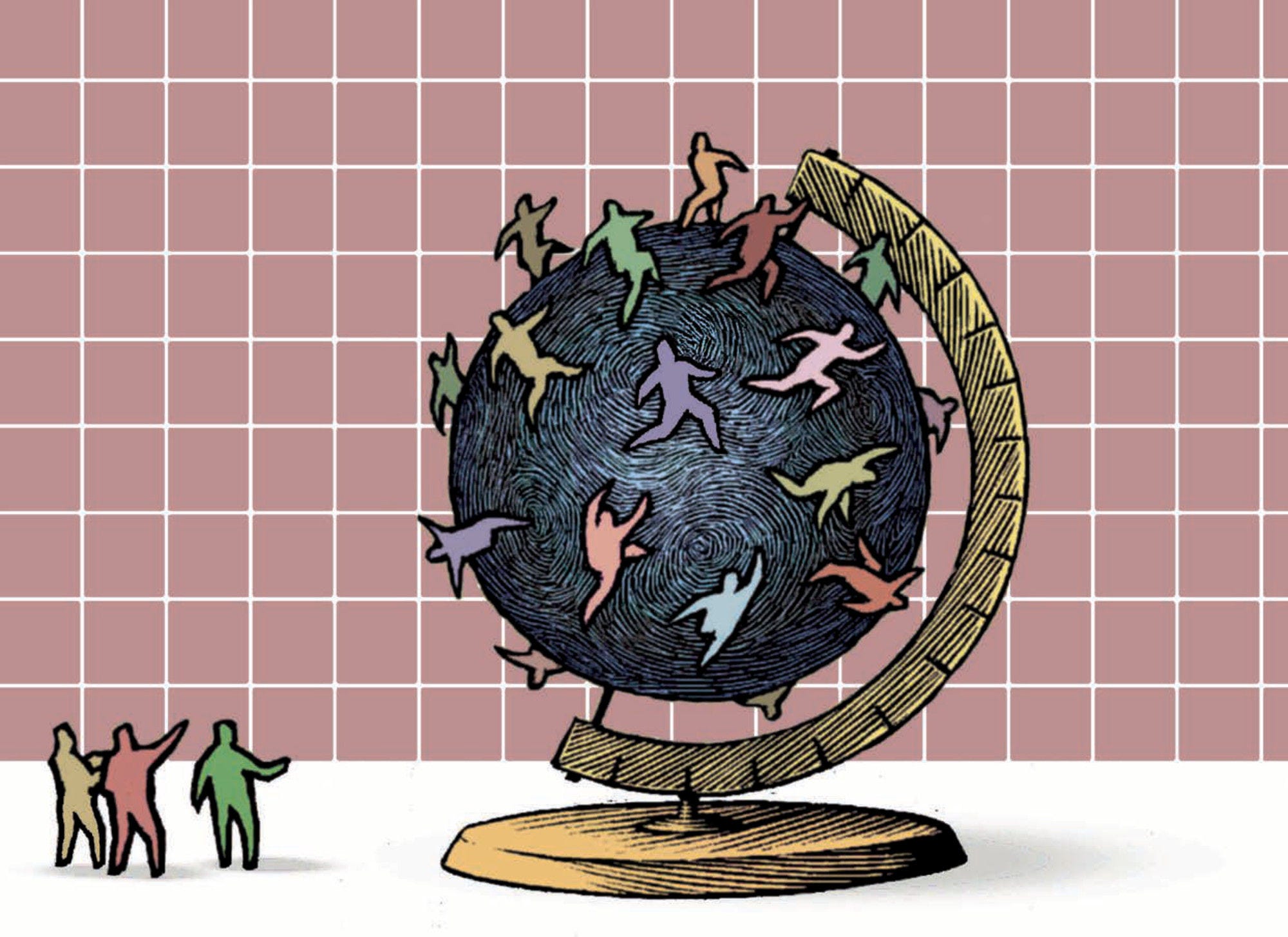In 2017, Austria received 99 000 new immigrants on a long‑term or permanent basis (including changes of status and free mobility), 6.7% fewer than in 2016. This figure comprises 58.8% immigrants benefitting from free mobility, 5.1% labour migrants, 9.7% family members (including accompanying family) and 26% humanitarian migrants.
Around 4 100 permits were issued to tertiary‑level international students and 7 200 to temporary and seasonal labour migrants (excluding intra‑EU migration). In addition, 141 000 intra‑EU postings were recorded in 2017, an increase of 17% compared to 2016. These posted workers were generally on short‑term contracts.
Romania, Germany and Hungary were the top three nationalities of newcomers in 2017. Among the top 15 countries of origin, Romania registered the biggest increase (1 200) and Afghanistan the largest decrease (‑9 600) in flows to Austria compared to the previous year.
In 2018, the number of first asylum applicants decreased by 48.3%, around 11 600. The majority of applicants came from Syria (3 300), Afghanistan (1 800) and Iran (1 000). The largest increase since 2017 concerned nationals of Iran (+100) and the largest decrease, nationals of Syria (‑4 000). Of the 35 000 decisions taken in 2018, 43.5% were positive.
Emigration of Austrians to OECD countries decreased by 2.5%, to 19 000. More than half (50.3%) migrated to Germany, 13.9% to Switzerland and 7.3% to Turkey.
Elected in 2017, the Austrian coalition government altered the Red‑White‑Red (RWR) skilled points‑system in 2018 to reduce bureaucracy and, considering provincial scarcities, to increase the list of scarce occupations from 27 to 45. The eligibility criteria under the RWR Card for key employees was altered at the beginning of 2019, awarding more points for relevant work experience and language skills, fewer points to young workers, and requiring more points overall to qualify. Changes announced in February 2019 abolish the need to provide proof of accommodation at the time of application and lower the minimum required wages for “key employees” by EUR 500 (at least until 2022). Young applicants with limited work experience are less likely to qualify under the new rules, unless they have considerable language skills. In 2018, Austria extended its working holiday programme to include agreements with Israel, Canada, Chile and Australia.
Since 2019, family benefits have been adapted to a value commensurate with purchasing power in the source country for EU‑citizens working in Austria. This indexation results in most cases in a reduction of benefits for families whose children live abroad.
In March 2019, a government bill reformed the means‑tested minimum income scheme. The “Mindestsicherung/ Sozialhilfe”, set at EUR 885 for a single applicant in every region, is a social benefit for applicants who do not have sufficient financial security through other means (e.g. income, benefits from social insurance, maintenance, etc.) or assets. The amount can be about EUR 300 lower for certain applicants: those who have neither intermediate German (B1) nor advanced English (C1) language skills and have not fulfilled the obligations to integrate; and those who have not completed compulsory schooling taught in German. The reform contains benefits for single parents and people with disabilities and also adjusts benefits granted per child, in most cases reducing the benefits from the second child onwards.
The law entered into force in June 2019, and provinces have seven months to implement it.
Since September 2018, the Act Amending the Aliens Law 2018 (Fremdenrechtsänderungsgesetz) has tightened asylum procedures. Authorities may now take EUR 840 in cash from asylum seekers as a contribution to their subsistence costs and may screen applicants’ storage media (e.g. mobile phones) in order to establish their identities or travel routes. Refugees who voluntarily return to their country of origin may lose their status in an accelerated procedure, as well as young refugees who have been convicted of a juvenile offence. The minimum waiting period for Austrian citizenship for recognised refugees was extended from six to ten years.
In 2018, the government reduced federal spending for integration measures, such as language courses for asylum seekers and the support for participation in labour market entry programmes under the Integration‑Year Act of 2017. Austria changed its policy regarding asylum seekers in apprenticeships; previously allowed to take up apprenticeships under certain conditions, they now may only start apprenticeships after receiving a positive decision. Further, a “pupil” residence permit now allows its holder to apply for a residence permit for apprenticeship.
For further information:
www.migration.gv.at
www.bmeia.gv.at
www.bmi.gv.at
www.sozialministerium.at
http://statistik.gv.at
